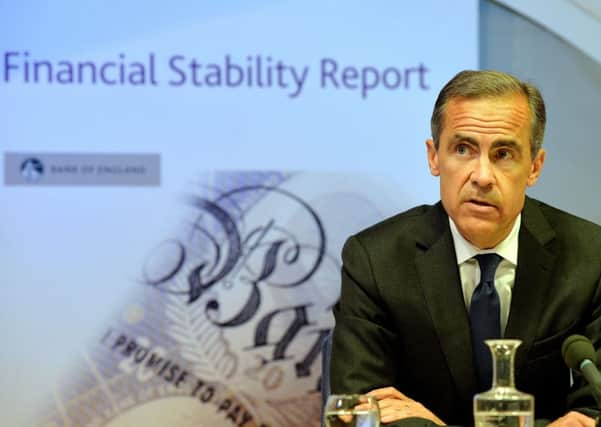Martin Flanagan: Calm before the financial storm


And the Eurozone sovereign debt crisis that rocked those markets in 2011 and 2012 almost has a slightly sepia tinge to it now .
Meanwhile, the UK economic recovery is gaining traction, with consensus growth forecasts of 3 per cent this year and 2.6 per cent next.
Advertisement
Hide AdAdvertisement
Hide AdBut a few factors suggest the UK market, in particular, might be tested by volatility as we move into the second half of the year, and further on.
Bank of England governor Mark Carney’s indications that an interest rate rise could come sooner rather than later, with most smart City money now betting on a hike this autumn or very nearly next year, is an obvious early potential trigger.
Admittedly, a quarter-point rise from the current historic low of 0.5 per cent would be unlikely to scare the horses. But when we get to the second or third quarter-point rise the City’s collective breath will be held for fear that it will pull the rug from under the still largely consumer-led UK recovery.
And, in its latest World Outlook, Deutsche Bank says don’t underestimate the Scottish independence referendum as another cause for UK financial market volatility, not only in the run-up to the vote but in the extensive negotiations afterwards if it is a Yes.
It would be almost strange if it was otherwise given the crucial monetary and fiscal implications for business of Scottish independence.
Deutsche Bank’s chief UK economist George Buckley also highlights the uncertainty for markets if Alex Salmond fulfils the threat of not honouring Scotland’s UK debt commitments post-independence if a newly independent country does not get an agreed currency agreement with the UK.
Some believe the SNP is bluffing, and would not shoot itself in the foot on its debt commitments because of the savaging the country’s subsequent credit ratings would take. But it is another reason for uncertainty and volatility in equities, gilts and Forex markets.
Then we have the UK general election next year. If Labour’s narrow poll lead proves justified and it is victorious, how will markets react to Ed Miliband’s perceived anti-business crusade?
Advertisement
Hide AdAdvertisement
Hide AdMiliband’s natural default position seems to be interventionist in business and it could certainly change the mood music around equities.
There may then be a respite from market uncertainty as the Scottish and UK electoral dust settles. But, wait. If the Tories win the general election, we have that European Union membership referendum looming for 2017, with Britain potentially exiting from the EU three years after Scotland has maybe exited from Britain. Fog in Channel, Britain cut off. Strap yourself in.